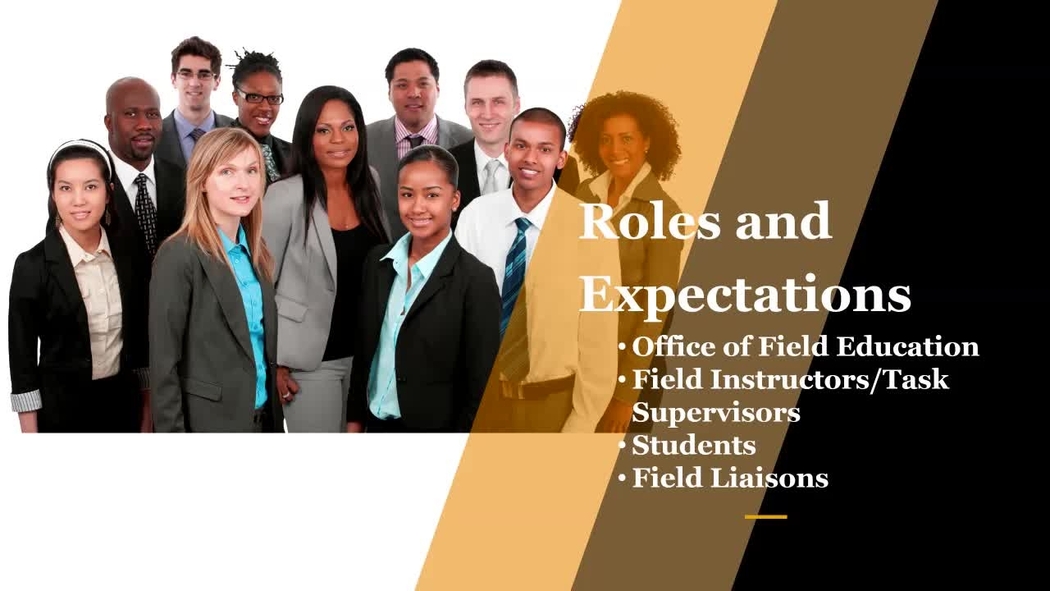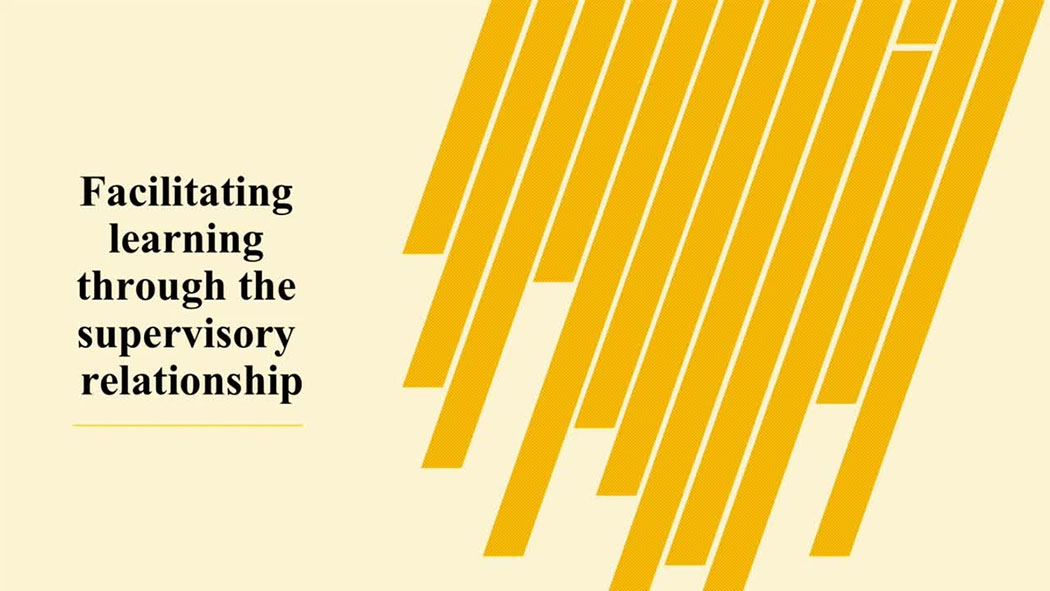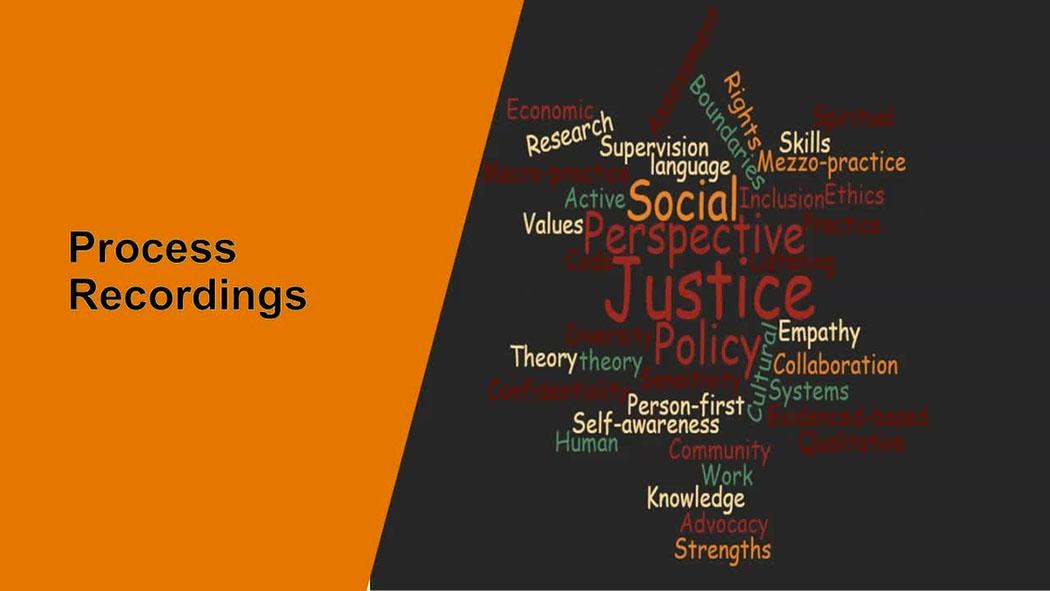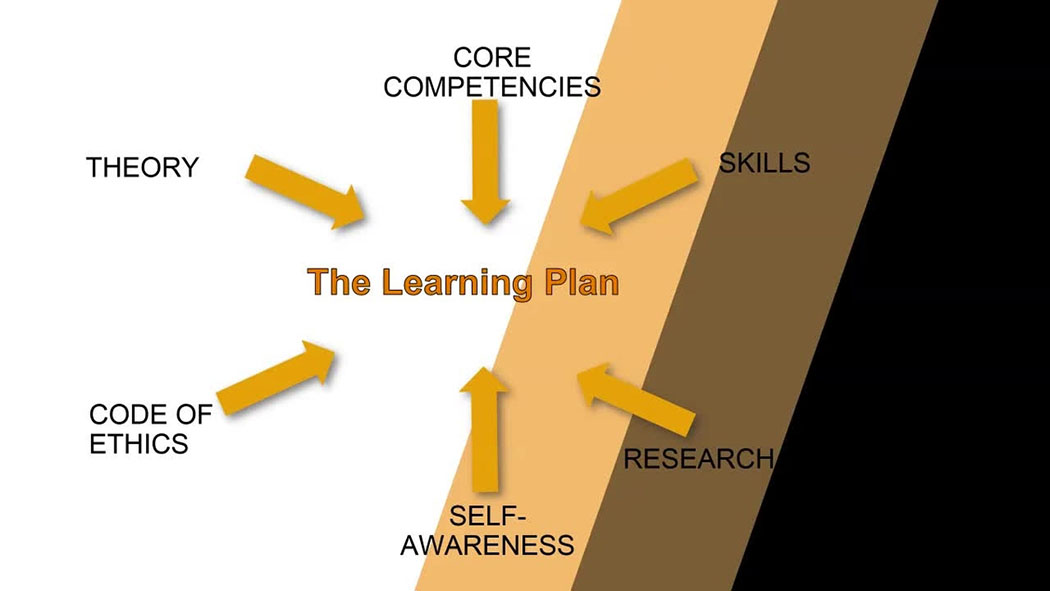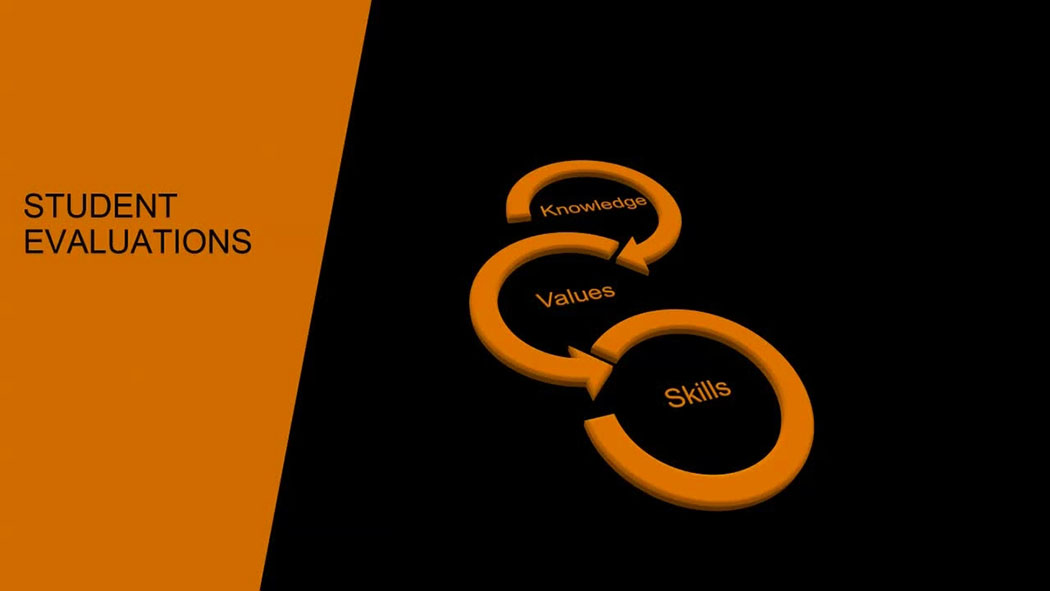Training resources for field education
The VCU School of Social Work has required training for field instructors, task supervisors and agency partners. For questions or support in accessing any of the online information, please contact the Office of Field Education at (804) 828-0708 or swfld@vcu.edu.
At the end of your training, please also take our orientation learning assessment.
View field manual
The Field Education Manual is required reading for all students and contains more detailed information about the expectations and policies of field education. Many of your questions may be answered by consulting this manual.
Training modules
Field instructors, task supervisors and community partners, thank you for collaborating with the VCU School of Social Work to provide field education supervision to BSW and MSW students. We are honored to collaborate with you to prepare the next generation of social workers for practice. The Office of Field Education (OFE) is responsible for administering the field education program and making all decisions affecting student field placements and field education courses.
The VCU School of social work is accredited by the Council of Social Work Education also known as CSWE. CSWE has identified field education as the signature pedagogy of social work education, which means that field education is the central form of instruction and learning for socializing students to perform the role of practitioner.
CSWE has identified nine competencies that form the basis of social work education. At the field placement, BSW and MSW students are expected to engage in activities that allow them to demonstrate mastery in the nine competencies. You will hear more about how the competencies are integrated in field education learning in later modules.
Social work education competencies
- Competency 1 - Demonstrate ethical and professional behavior.
- Competency 2 - Engage in diversity and difference.
- Competency 3 - Advance human rights and social, economic and environmental justice.
- Competency 4 - Engage in practice-informed research and research-informed practice.
- Competency 5 - Engage in policy practice.
- Competency 6 - Engage with individuals, families, groups, organizations and communities.
- Competency 7 - Assess individuals, families, groups, organizations and communities.
- Competency 8 - Intervene with individuals, families groups, organizations and communities.
- Competency 9 - Evaluate individuals, families, groups, organizations and communities.
In this module, we will discuss the roles and expectations for all of those involved in the field placement experience of a student, to include the field instructors (and task supervisors if applicable), the field liaisons, the Office of Field Education, and the students themselves. By the end of this module it is our hope that you are able to clearly define who is responsible for all of the various components and requirements related to a student’s experience in field.
» Watch the video here or by clicking/tapping on the image below.
- Video transcript [Google Document]
- Presentation from video [Microsoft PowerPoint]
Resources
In this module, we will discuss how to facilitate learning through a supportive supervisory relationship. Creating a trusting relationship with your student will lend toward a supervisory relationship in which students can give and receive critical feedback to help them grow professionally.
» Watch the video here or by clicking/tapping on the image below.
- Video transcript [Google Document]
- Presentation from video [Microsoft PowerPoint]
Resources for supervising interns
- Social Work Practice Education Supervision Scenario 3 [YouTube Video]
- Social Work Practice Education Scenario 1 [YouTube Video]
- The Meaning and Value of Supervision in Social Work Field Education [Article]
In this module we discuss important field education policies and guidelines to enhance your understanding of expectations for students, field instructors and the field agencies.
» Watch the video here or by clicking/tapping on the image below.
- Video transcript [Google Document]
- Presentation from video [Microsoft PowerPoint]
Click the (+)'s below to learn more about the minimum required hours in field education for each student level.
Resources
Learning documents
In this module, we will highlight all of the learning documents students will complete as a field education student. Subsequent modules will provide greater detail about each document. Click the (+) below to get an overview of the learning documents.
All students are required to complete a working contract within the first two weeks of field placement. This document specifies the agreement between the field instructor and the student regarding the student's weekly schedule in field, important meetings they are expected to attend (for example, supervision time, team meetings that are required, etc.), and when conference agendas and process recordings are due.
It is important that the working contract be completed as soon as possible and have it signed by the field instructor and student, in order to prevent any misunderstanding. Students must use the template below to prepare their contract. The student's field liaison will review and sign the working contract as well.
Students will be given a link by their field liaison to the working contract in Docusign, which will greatly aid in the digital signature gathering process. You can anticipate receiving an email from Docusign once the student's working contract is ready to be reviewed and signed by you.
- Working Contract Example [PDF]
- Working Contract Template [Google Document]
In this module, we will highlight the process of creating, implementing, and culminating conference agendas. Conference Agendas can be an excellent tool for learning when students take responsibility for the development of the agenda and leading a productive supervision meeting with their field instructor.
Resources
- Conference Agenda Example [Google Document]
- Conference Agenda Template - traditional [Google Document]
- Conference Agenda Template - generalist [Google Document]
In this module, we will discuss the Educational Learning Tool known as the Process Recording. You will learn where to access the templates and additional resources that students can utilize to complete them. You will learn the purpose of the process recording, the elements that make up a process recording, and the criteria for completing them and we will briefly review the various templates.
» Watch the video here or by clicking/tapping on the image below.
- Video transcript [Google Document]
- Presentation from video [Microsoft PowerPoint]
Resources
- Process Recording 101 for students [Google Document]
- Process recording example [PDF]
- Process recording template for community meetings [Google Document]
- Process recording template for individuals, couples and families - column format [Google Document]
- Process recording template for individuals, couples and families - narrative format [Google Document]
- Process recording template for macro practice [Google Document]
- Process recording template for small client groups [Google Document]
In this module, we will cover the student Learning Plan document. We will cover what a learning plan is, how learning plans are structured and how students can complete them effectively. We will also develop a few placement tasks on an actual Learning Plan to provide you with an idea of some practical examples.
» Watch the video here or by clicking/tapping on the image below.
- Video transcript [Google Document]
- Presentation from video [Microsoft PowerPoint]
Resources
In this module, we will cover student evaluations. You will learn where the evaluation forms can be found. We will discuss the multiple touchpoints for evaluating a student review in an evaluation template. We will also cover the timesheet form that documents the students’ hours in field.
Students will be given a link by their field liaison to the final evaluation and timesheet in Docusign, which will greatly aid in the digital signature gathering process. You can anticipate receiving an email from Docusign once the student's evaluation is ready to be completed and signed by you. You will receive a separate email through Docusign once the student's timesheet is ready to be reviewed and signed by you.
» Watch the video here or by clicking/tapping on the image below.
- Video transcript [Google Document]
- Presentation from video [Microsoft PowerPoint]
Resources
- OFE SLWK 393 evaluation
- OFE SLWK 494/495 evaluation
- OFE SLWK 612 evaluation
- OFE SLWK 693/694 evaluation
- OFE SLWK 695 evaluation
- OFE SLWK 793/794 evaluation — clinical
- OFE SLWK 793/794 evaluation — macro
- OFE SLWK 795 evaluation — clinical
- OFE SLWK 795 evaluation — macro
- OFE SLWK 796/797/798 evaluation
Assessment
Please complete the Office of Field Education learning assessment form. There are 16 questions. You will be emailed a copy of your answers for your record. Thank you for all that you do to support our field education students.
Provide feedback
We'd like your feedback to evaluate our training and your satisfaction. Please complete our survey.
